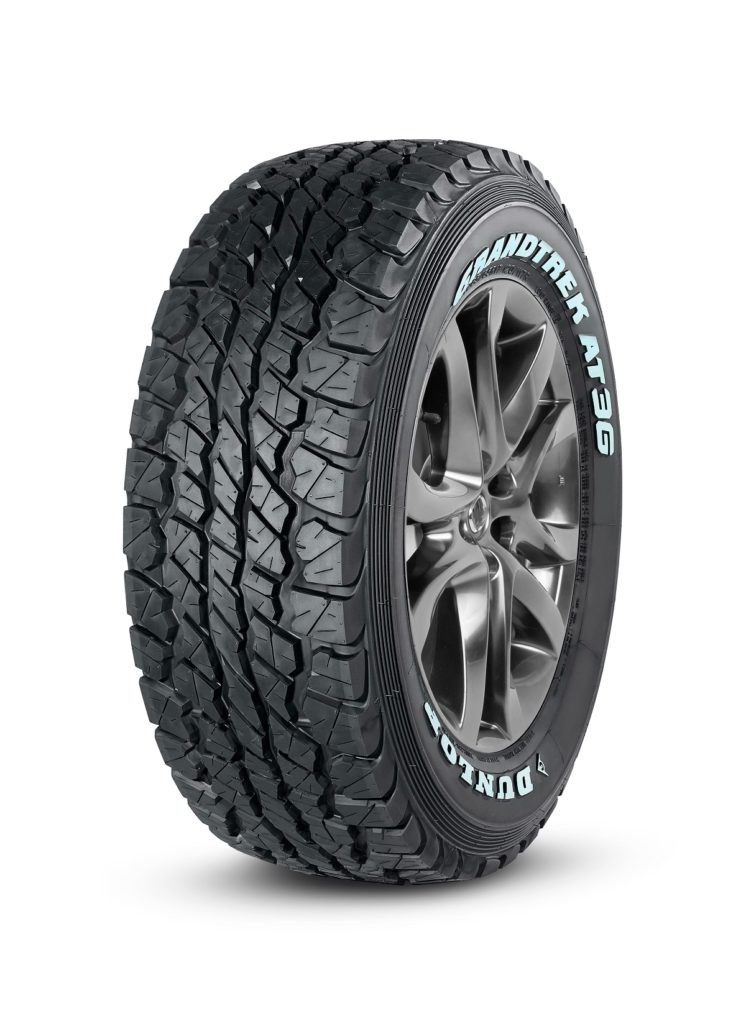Dunlop’s locally manufactured Grandtrek AT25 is OE (original equipment) fitted to South Africa’s newest bakkie entrant – the Isuzu D-Max, launched in April.
The Dunlop Grandtrek AT25 is manufactured by Sumitomo Rubber South Africa (SRSA) at its Ladysmith factory, where there has been ongoing investment in research, development and production to meet the stringent demands of the OE market.
“The Isuzu D-Max is the latest in a line-up of vehicles to sport the Dunlop Grandtrek AT25, which is also specified as original equipment on the Nissan Navara (sizes 205R16 AT25, 255/65R17 AT25 and 255/60R18 AT23), as well as selected Toyota Fortuner and Hilux models,” said SRSA CEO, Lubin Ozoux.
The new Isuzu D-Max (formerly Isuzu KB) builds on its predecessor’s solid reputation as a formidable off-road vehicle with a tyre specification that delivers top quality, safety and durability, excellent on-road performance, as well as great off-road capability.
“The Dunlop Grandtrek AT25 is a new generation SUV/4×4 tyre that includes a strong side wall and a re-engineered tread design that improves mileage, reduces tread cutting, chipping and chunking, as well as rolling resistance. The Grandtrek AT25 also provides superior comfort and low noise generation,” Ozoux added.
He believes that winning bids to produce tyres for original equipment manufacturers is not only good news for the local tyre market, but for the South African consumer, as it compels manufacturers to develop tyres that meet global standards and to think ahead.
“Our OE footprint is growing steadily as vehicle manufacturers gain trust in locally manufactured tyres.OEMs generally choose a tyre supplier based on the company’s technical capability to fulfil the design and performance requirements, cost and risk to the project timing. Producing an OE tyre from conception generally takes 18-36 months and rolls out in line with the OEM’s launch programme. The OEM will be looking for tyres with specific performance characteristics to deliver optimal performance for the particular vehicle,” Ozoux explained.
“It’s a complex process that begins with SRSA’s designers creating a specification that matches the OEM requirements. The Factory, Sales and Corporate Planning then make sure that SRSA can meet the requirements, before submitting a quote. If selected, we enter the development and approval phase, where we build the tyres and test them internally before submitting them to the OEM for vehicle and laboratory testing. During this stage, SRSA will go through the required iterations of design, development, internal testing and OEM testing (homologation) before the tyre is approved.”
Characteristics that are tested include handling, braking, rolling resistance coefficient (RRC), noise levels, durability, comfort, wear and compound properties to ensure the tyre meets all the criteria required to enable the vehicle to perform at its optimal level.
Tyre and vehicle design go hand-in-hand which is why to ensure performance, end users are advised to fit the tyres recommended by the OEM when the original tyres need replacement.
In the face of stiff competition, SRSA offers added value to its OE customers, such as OE warranty support as well as car dealer business solutions and a holistic service package.

